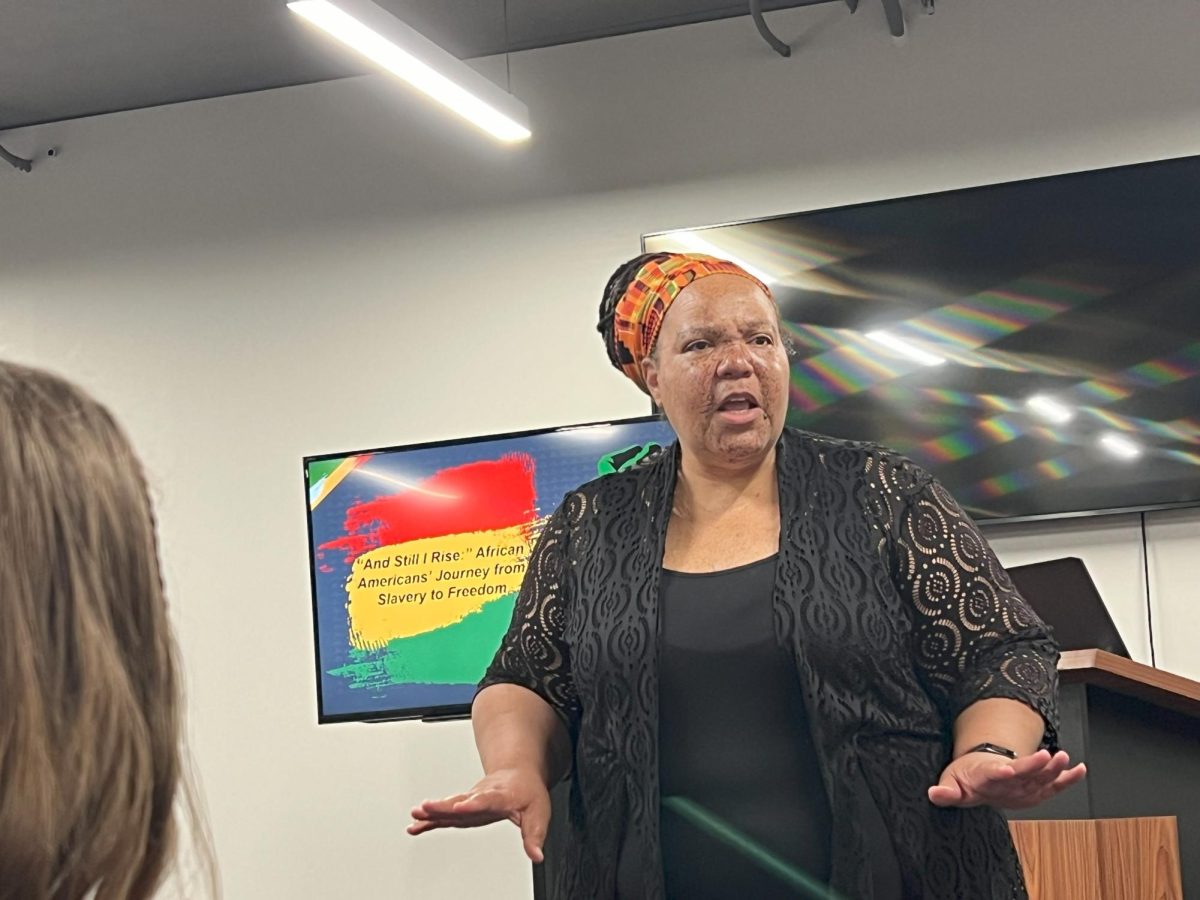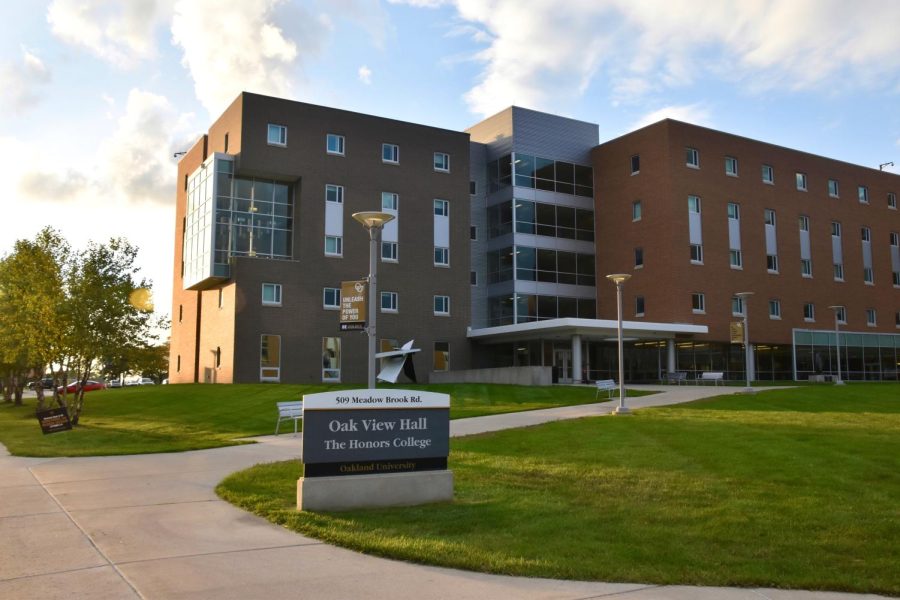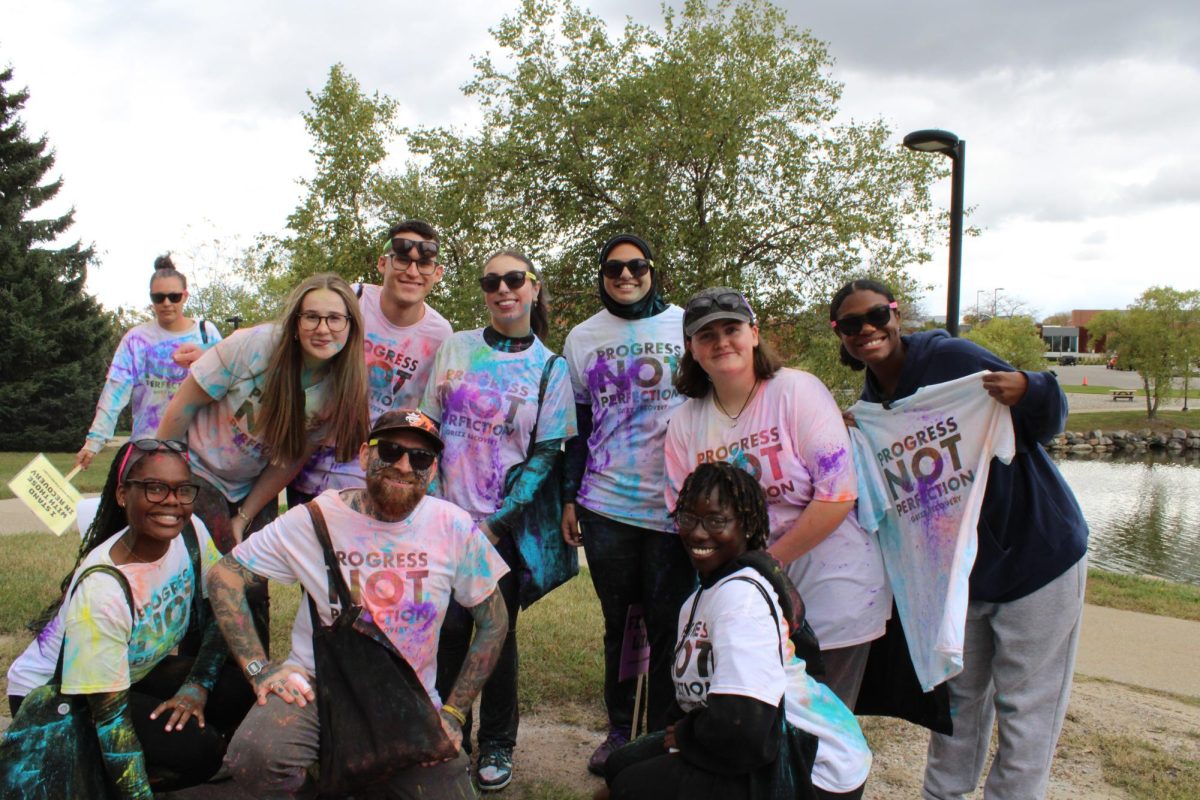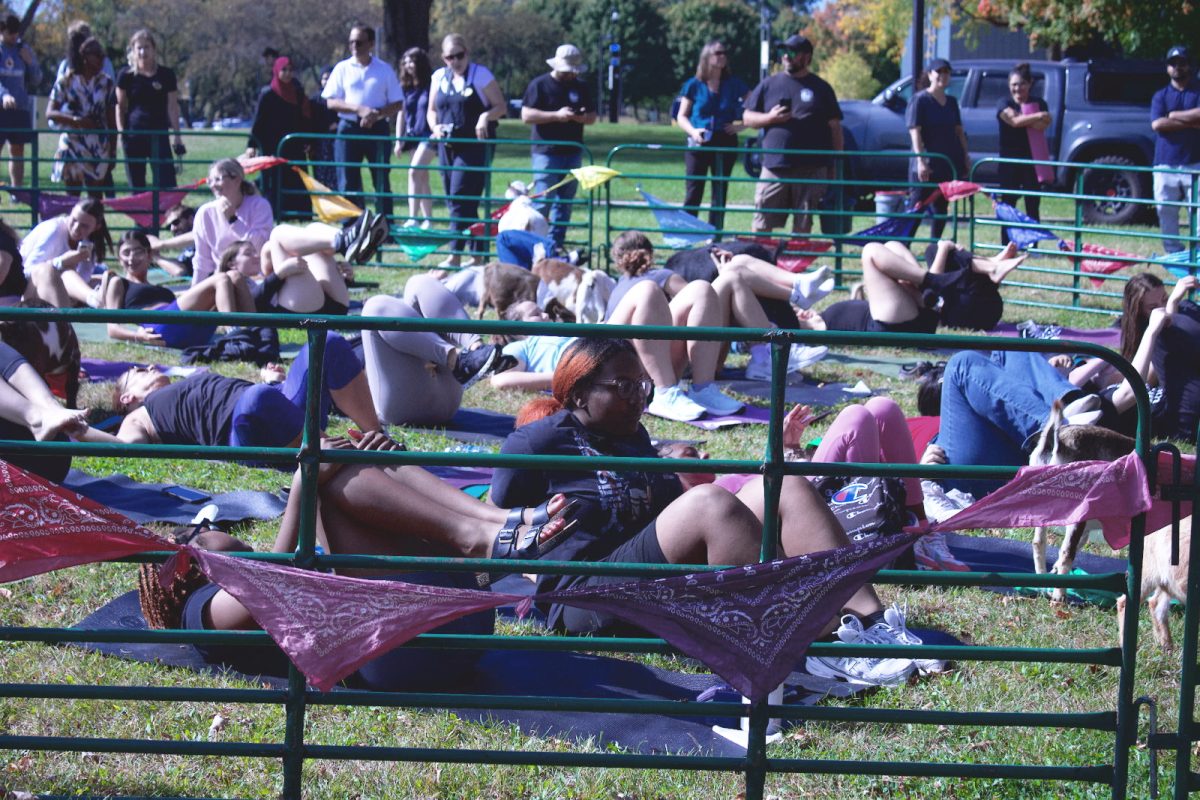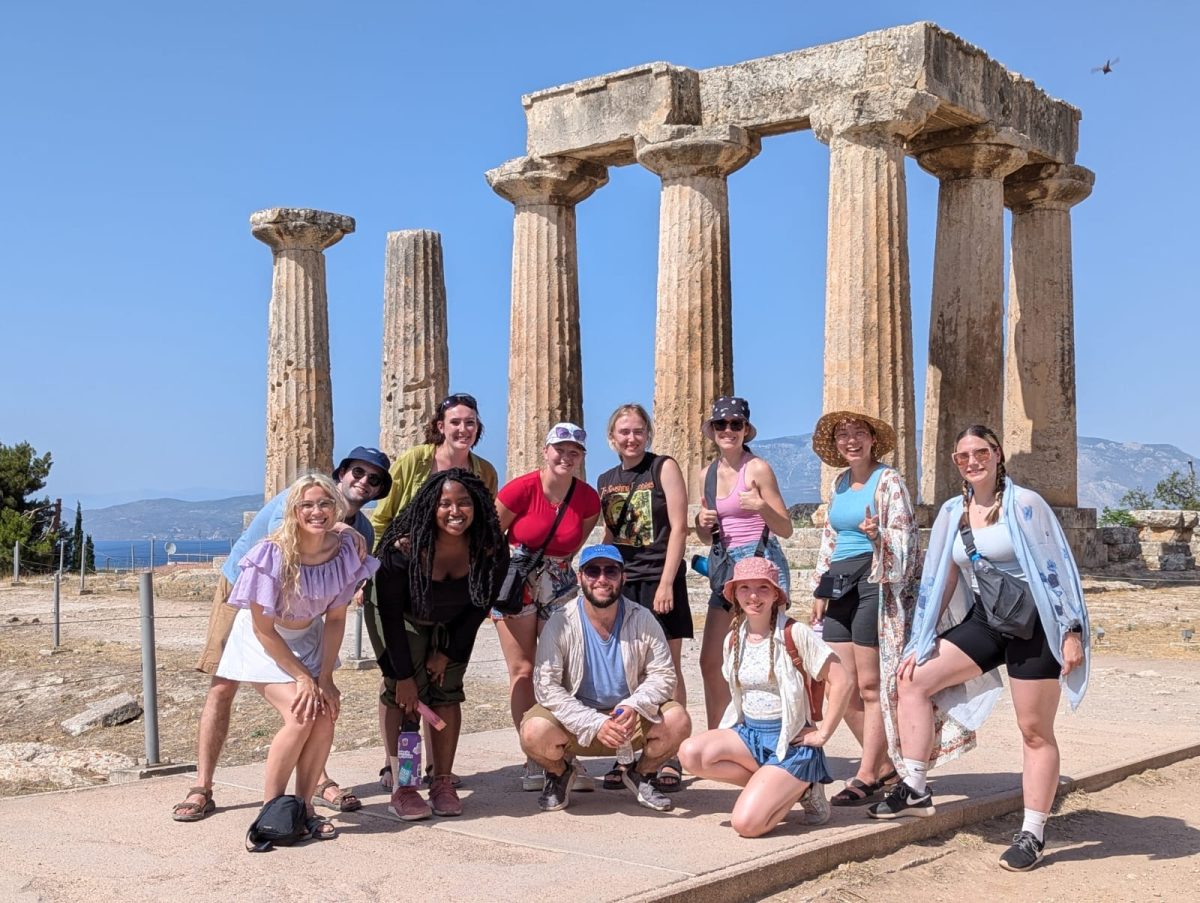In a Crash Course style, professor Rochelle E. Danquah summarized a semester’s worth of content into a two-hour lecture on African American history analyzing the remains of Jim Crow laws and advancements in civil rights movements in today’s Michigan at the “And Still I Rise” event.
On Sept. 18, Hillcrest’s Collaboration Center became a remembrance site to analyze local history, unroot myths from facts and call for a change in how we interpret history.
Starting with the Black Codes in the British colonies, Danquah moved into an exploration of local residues of segregation in modern times and anecdotal examples to illustrate the extent to which race relations have advanced in Michigan.
“In my college years, it wasn’t a running joke, it was for real, it was ingrained in me — If I’m on I-96 and I get a flat, keep driving, especially if I’m anywhere in the area of Holland,” Danquah said to illustrate the local remains of racial violence.
The story of Ossian Sweet resisting a white mob attack on his Detroit house as the first African American in an exclusively white neighborhood in 1925 was explored to illustrate the reconstitution of the history process aimed at preventing the loss of collective memory.
“All of this needs to be a part of the American experience — America’s history is hard,” Danquah said. “It has its moments when it’s exciting and we do the right thing. But there also happen to moments where this can be terror on groups and individuals can be subject for the littlest things.”
Danquah also used Sojourner Truth’s famous “Ain’t I a Woman” speech to illustrate how to discern between a myth and a factual retelling of a story.
“How did she have a southern draw and dialect in ‘Ain’t I a Woman’? When she was enslaved in New York by the Dutch,” Danquah said. “She spoke fluent Dutch and her entire life she had a Dutch accent.”
While the example of Sojourner Truth might be harmless in a larger narrative, Danquah explained the importance of historical accuracy.
“There are so many outside places where these stories get distorted — historical fiction books, movies, etc” Danquah said. “Human beings aren’t perfect so it is up to us moving forward to help once again correct the narrative of the past, history is hard but you just can’t continue to teach hero history, we have to take it all, the good and the bad.”
“Events like this highlight the fact that history is really a living experience,” Skyler Janiszewski, an acting major, said. “It’s not just about something being written down in a book and knowing the right answer. It’s about this is how life looked for people at this time.”
After the lecture, some students shared their experiences dealing with the residues of discriminatory laws and practices in Michigan. Izzy Scott, a psychology student, explained how her school district in Ferndale was segregated up until 2016.
“So we had a ‘drawing system’ that basically let all the kids who lived in gentrified, whiter areas go to one school and then kids who lived in poor areas, who happened to be black — including myself, I am mixed — go to another school district.”
Scott explained that Calvin Coolidge School offered a lower quality of education that impacted her and her peers as they weren’t taught properly to read or lacked a comprehensive mathematics curriculum.
“It really robbed a bunch of black students from that [academic] experience, and then [the school district] just completely forgot about them,” Scott said. “So don’t let the past be the past like everyone always says. This happened when I was in fourth grade, so if you say, ‘let the past be the past,’ the past is just gonna repeat and repeat and repeat.”



